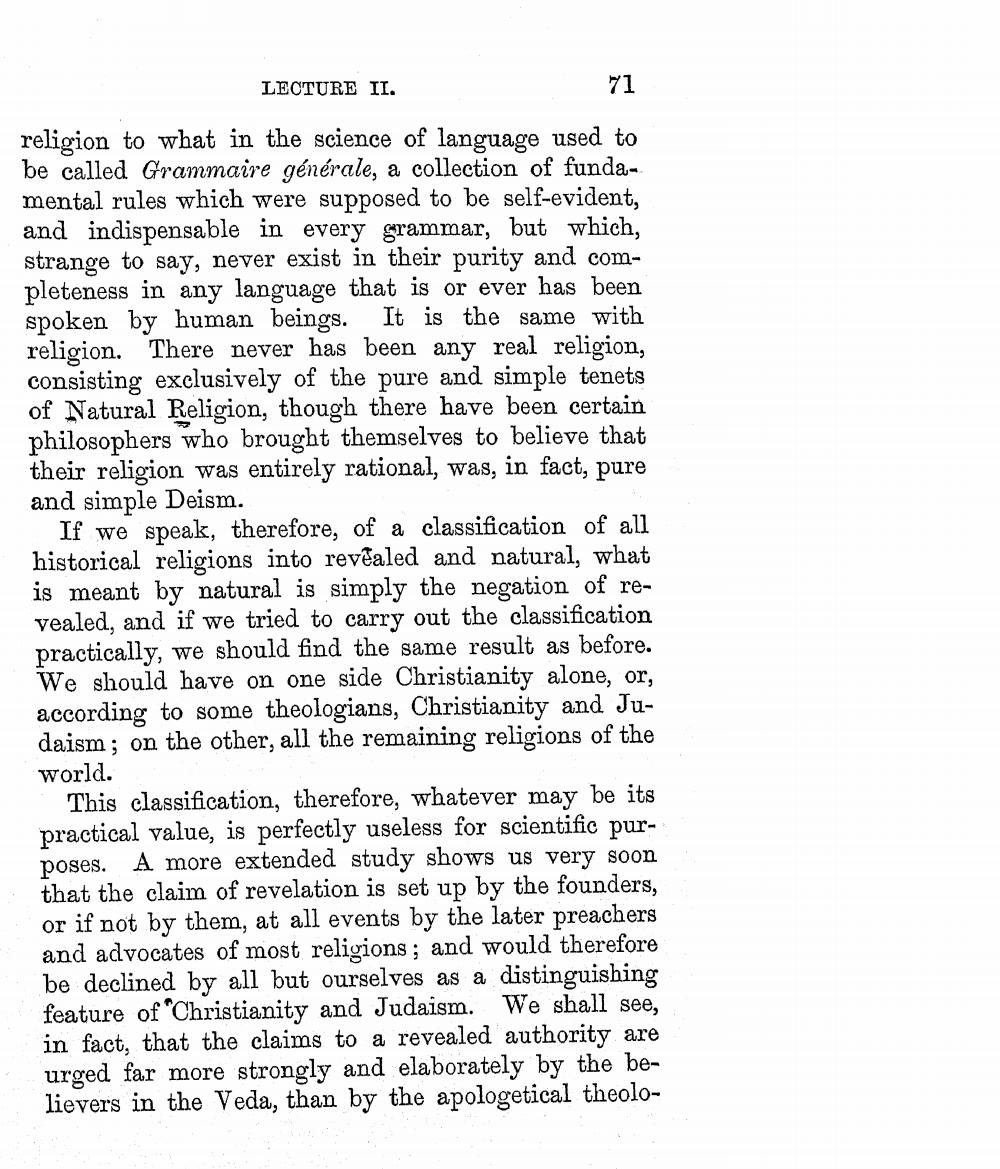________________
LECTURE II.
71
religion to what in the science of language used to be called Grammaire générale, a collection of fundamental rules which were supposed to be self-evident, and indispensable in every grammar, but which, strange to say, never exist in their purity and completeness in any language that is or ever has been spoken by human beings. It is the same with religion. There never has been any real religion, consisting exclusively of the pure and simple tenets of Natural Religion, though there have been certain philosophers who brought themselves to believe that their religion was entirely rational, was, in fact, pure and simple Deism.
If we speak, therefore, of a classification of all historical religions into revealed and natural, what is meant by natural is simply the negation of revealed, and if we tried to carry out the classification practically, we should find the same result as before. We should have on one side Christianity alone, or, according to some theologians, Christianity and Judaism; on the other, all the remaining religions of the world.
This classification, therefore, whatever may be its practical value, is perfectly useless for scientific purposes. A more extended study shows us very soon that the claim of revelation is set up by the founders, or if not by them, at all events by the later preachers and advocates of most religions; and would therefore be declined by all but ourselves as a distinguishing feature of Christianity and Judaism. We shall see, in fact, that the claims to a revealed authority are urged far more strongly and elaborately by the believers in the Veda, than by the apologetical theolo




